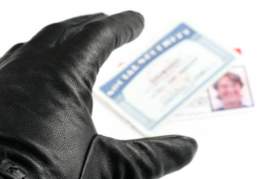
Forgery at a Glance

Robbery is a type of theft that involves force. Force is used as the means of coercing someone to give up an object to someone that is not rightfully theirs. The use of force in robbery is not limited to physical force.
Forgery is a form of robbery because deception is used as the means of initiating force against someone else for personal gain. The law protects individuals from the use of deception as a means of personal gain. Falsely representing oneself for personal gain is not only an unethical activity, but a crime punishable by law.
As defined in legal dictionaries, forgery is "the fraudulent making and alteration of a writing to the prejudice of another man's right." This simply means the malicious misrepresentation of a document to destroy one's right to life, liberty, or property. The simplest form of forgery is the signing of another person's name to a check without the permission or authority to do so. Forging a signature on a check is a criminal offense because it involves the wrongful loss of the victim's property (money).
There are many types of forgery. The alteration of anybody else's written work without permission is considered forgery. The passing of written information such that it appears to be legitimate but fraudulent is forgery. Making any verbal claim as to the truthfulness of a forged document is another action that is considered forgery. There are even forgeries of visual art to mislead art dealers into buying a forged work of a famous artist. Wills, titles, and license applications are other examples of common documents a forger will use to fabricate fraudulent information.
The Supreme Court case of People v. McAffey defined forgery as "when one passes a false instrument with the intent to defraud, and with the element of loss or detriment is immaterial." This clarification of the definition of forgery elicits a key factor in the prosecution of forgery: loss. Forgery is most often a criminal offense when the loss is a substantial amount property or money.
There is a statutory threshold that determines the minimum amount of property loss to constitute criminal forgery. When a forged document deceives someone to the detriment of someone's reputation, forgery is considered a civil offense.
Forgery is often litigated in civil court. Upon revelation of the important facts of a case, the facts may lead to criminal standing.

















